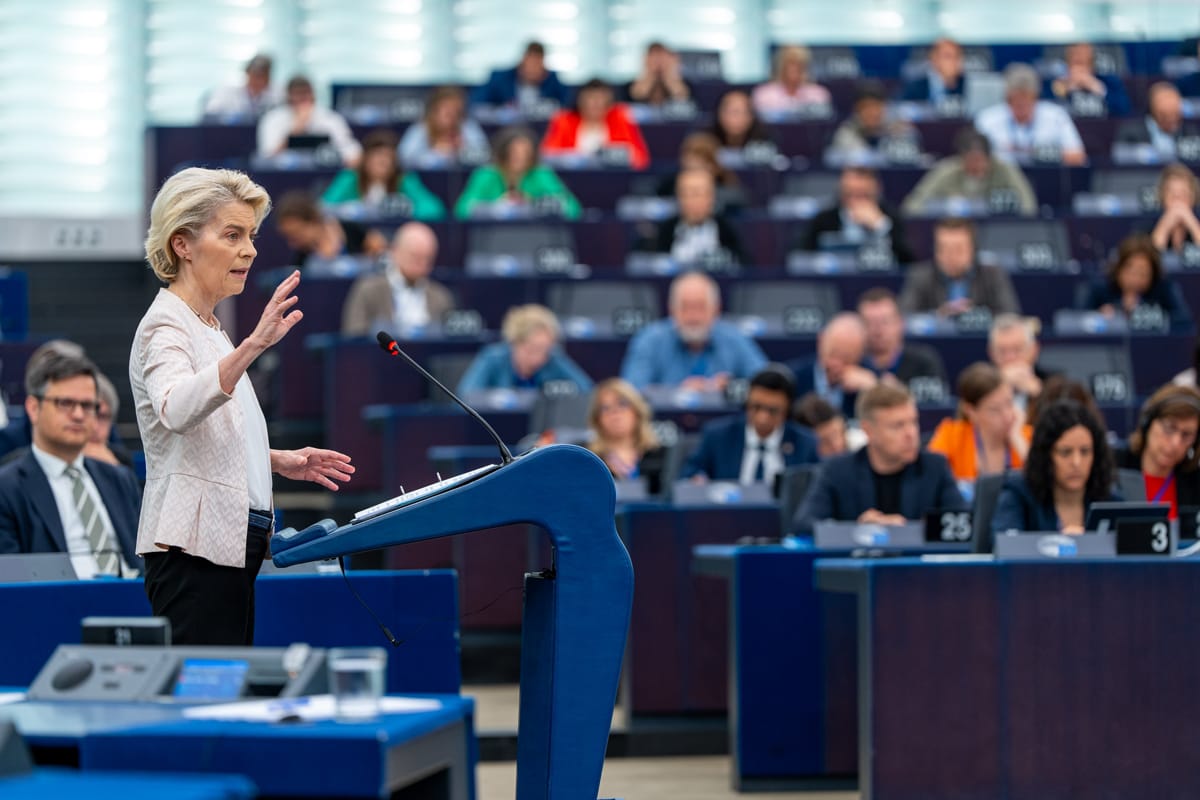Within minutes of the announcement of Donald Trump’s second presidential victory, debates on European defence – which are as old as the European project itself – reemerged as European leaders and commentators multiplied calls for a stronger and more independent Europe. Trump’s critiques of NATO both during his first term and during the 2024 presidential campaign, along with his takes on key issues such as Ukraine, left Europe no choice but to come to terms with the fact that the American involvement in support of the continent could no longer simply be taken for granted.
Leading these calls to strengthen European sovereignty was French President Emmanuel Macron, who, minutes after having congratulated Trump on X, explained that he had already spoken with German Chancellor Olaf Scholz to discuss how to promote “a more united, stronger and more sovereign Europe in light of this new context”.
This kind of language is far from surprising from Macron. He has called for a strengthening of European sovereignty since the beginning of his presidency in 2017, on the basis that the survival of the EU and the “European civilisation” are at stake. As a result, Macron has put forward proposals in a wide range of fields such as security, defence, migration, the Euro, taxation, trade, climate, social issues, health, sustainable development and digital policy. In terms of defence and security, the French President has pushed for the European Union to become “a power with a strategic autonomy” by proposing initiatives such as a European Intelligence Academy, a European Council for Internal Security, a common civil protection force, a border police force, and a treaty on defence and security.
The European Union has achieved some progress in defence and security in recent years. In particular, the adoption in 2022 by EU members of the Strategic Compass for Security and Defence which include key initiatives such as the establishment of EU Rapid Deployment Capacity of up to 5000 troops by 2025 is noteworthy. EU member states have also stepped up their defence expenditures.
However, there is still a long way to go before the objective of “strategic autonomy” – or even simply, a stronger European defence – is reached.
Key questions remain. What does a European defence resemble, in concrete terms? What does it mean for the sovereignty of member states? How autonomous can it realistically be expected to be? What elements and threats should be prioritised? How will it be financed? What relationship should it have with NATO?
These are old questions that remain broadly unanswered.

While Macron would love to seize the opportunity to lead European reforms to make European strategic autonomy a reality – especially at a time where he is weakened domestically since the defeat of his party at the French legislative elections in June-July this year – such a task cannot be undertaken by one leader or one state. This is particularly true for Macron since his unapologetically ambitious, fast-paced and at times openly provocative style has ruffled more than a few feathers over the years and has occasionally weakened his European policy.
Back in 2019, European deputy Reinhard Bütikofer did not hold back on Macron’s performance, explaining that “the French President seems to tell us: ‘I am in command, I know where to go, and you are the infantrymen and you follow me!’ Europe does not work like that!”
A Franco-German leadership would also not be sufficient, especially considering the upcoming German federal election. However, a coalition composed of France, Germany, Poland and the United Kingdom could be productive in promoting a coordinated joint European project. While they cannot lead on their own, France and Germany remain key players in light of their historical commitment to a European defence, their aid to Ukraine, and their military-industrial-complexes. Additionally, Polish Prime Minister Donald Tusk is a well-known advocate of a stronger European defence (and former President of the European Council), while British Prime Minister Keir Starmer has promoted stronger ties with the EU in a post-Brexit era.
This coalition would still face opposition from populist leaders such as Hungarian President Viktor Orban. But it would benefit from the support of EU Commission, which has become active in terms of defence and security in recent years, shown by the creation of the role Commissioner for Defence and Security in 2024. It also published the European Defence Industrial Strategy and established new funding schemes such as the European Defence Industry Reinforcement through common Procurement Act (EDIPRA) and the Act in Support of Ammunition Production (ASAP). EU Commission President Ursula von der Leyen reiterated in her speech to the European Parliament in July 2024 that these initiatives were only the beginning, and put forward new proposals such as “European Defence Union”, “a single market for defence” or a “European Air Shield”.
In other words, the challenges ahead remain complex but the time for a stronger European defence is ripe, if not urgent. If European leaders are up to seizing this opportunity, there is a chance for a strong, coordinated, and bold approach – or the project for a European defence will remain, once again, just that, a project.

